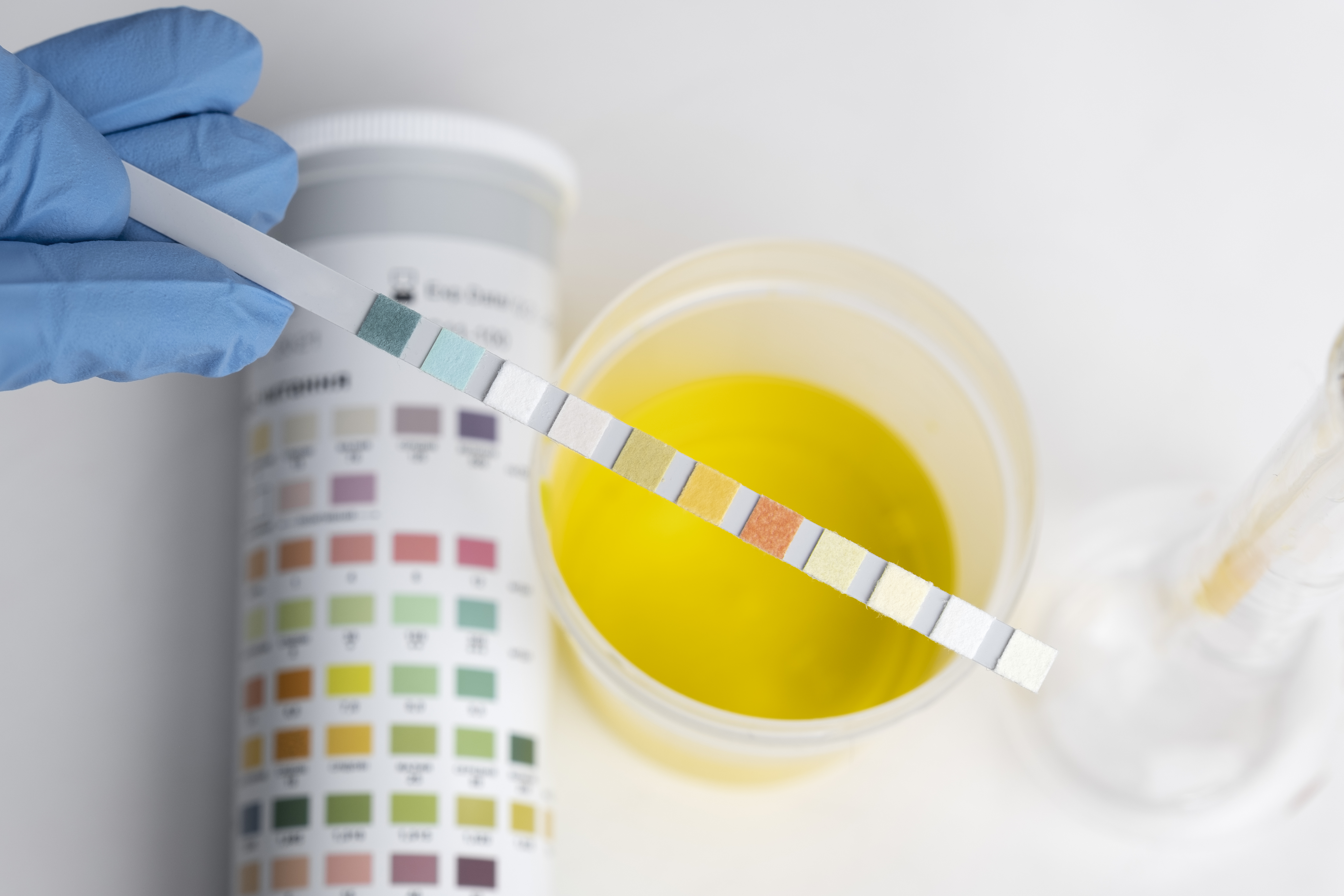
Everything You Need to Know About Urinalysis (Urine tests)
Urine tests or urinalysis play a vital role, providing valuable insights into various aspects of our health. Whether it’s diagnosing medical conditions, monitoring kidney function, or assessing urinary tract infections, urine tests offer a comprehensive analysis that aids in accurate medical decision-making.
What tests are done on a urine sample?
By examining different components and measuring specific substances, urine tests help detect medical conditions, monitor organ function, and identify potential health issues.
1. Visual Examination
The first step in urinalysis is a visual examination of the urine sample. This involves assessing the color, clarity, and odor of the urine, which can provide initial indications of certain conditions. Abnormalities in color, such as dark or cloudy urine, can signal dehydration, infections, or the presence of blood.
2. Dipstick Test
The dipstick test is a rapid and convenient method to assess multiple components in urine. A specially designed strip with various chemical pads is dipped into the urine sample, and the color changes on the strip indicate the presence or absence of certain substances. The dipstick test typically includes the following parameters:
– pH Levels
The pH level indicates the acidity or alkalinity of the urine. Normal urine pH is typically slightly acidic, ranging between 5 and 7.
– Protein
Protein in urine, known as proteinuria, can be a sign of kidney damage or disease. It is an important marker for detecting conditions like kidney inflammation (glomerulonephritis), diabetes, high blood pressure, or certain autoimmune disorders.
– Glucose
Elevated levels of glucose in the urine, known as glucosuria, may indicate poorly controlled diabetes. It suggests that the body is unable to reabsorb glucose adequately.
– Ketones
The presence of ketones in the urine, known as ketonuria, suggests that the body is breaking down fat for energy instead of utilizing glucose.
– Blood
The presence of blood in the urine, known as hematuria, can have various causes, including urinary tract infections, kidney stones, bladder or kidney infections, or even certain cancers.
– Nitrites and Leukocytes
The presence of nitrites and leukocytes in the urine indicates the possibility of a urinary tract infection (UTI). Nitrites are produced by certain bacteria that cause UTIs, while leukocytes are white blood cells that indicate an immune response to infection.
3. Microscopic Examination
In addition to the dipstick test, a microscopic examination of the urine sample is performed. A small portion of the sample is centrifuged to concentrate any sediment present, which is then examined under a microscope. This allows for the identification and enumeration of red and white blood cells, bacteria, yeast, crystals, and other cellular or particulate matter that may not be visible to the naked eye. Microscopic examination aids in the diagnosis of urinary tract infections, kidney diseases, and other conditions.
4. Additional Tests
Depending on the clinical situation and suspected conditions, additional tests may be conducted on the urine sample. These may include: Culture and Sensitivity Test, Microalbumin Test, Crystals and Stone Analysis.
Key benefits of urine tests (Urinalysis)
Here are some of the key benefits of urine tests:
- Diagnosing Medical Conditions: Urine tests are used as diagnostic tools to detect and monitor various medical conditions. They can provide insights into conditions such as urinary tract infections, kidney diseases, diabetes, liver problems, and metabolic disorders.
- Monitoring Kidney Function: Urine tests play a crucial role in evaluating kidney function. The test can measure various markers in the urine, such as creatinine, albumin, and electrolytes, to assess the kidneys’ ability to filter waste products, regulate electrolyte balance, and maintain proper fluid balance.
- Assessing Urinary Tract Infections (UTIs): Urine tests are commonly used to diagnose urinary tract infections. By analyzing the urine sample, healthcare professionals can identify the presence of bacteria, white blood cells, or other indicators of infection in the urinary tract.
- Monitoring Medication Use: Urine tests can help monitor medication compliance and effectiveness. For individuals taking certain medications, such as painkillers, opioids, or psychoactive drugs, urine tests can confirm whether the medication is being used as prescribed.
- Pregnancy Testing: Urine tests are commonly used to detect pregnancy. They measure the levels of human chorionic gonadotropin (hCG) hormone in the urine, which is produced during pregnancy.
- Monitoring Overall Health: Regular urine tests can be part of routine check-ups to assess overall health status. By analyzing urine components such as glucose, protein, red and white blood cells, and other substances, healthcare professionals can gain insights into potential health issues or abnormalities that may require further investigation or treatment.
How much is urine test in Nigeria?
At RenHealth Care, we offer affordable urinalysis services at a cost of only 1000 naira. We understand the importance of access to quality healthcare, and our aim is to provide comprehensive diagnostic services at affordable prices. You can visit us at Queen Elizabeth II Road, UCH, beside SAO Filling Station, Ibadan, Oyo. Our experienced healthcare professionals ensure accurate and prompt results, helping you gain valuable insights into your health.
Conclusion
Urine tests play a vital role in diagnosing and monitoring various health conditions. These tests offer numerous benefits, including the ability to diagnose medical conditions such as urinary tract infections, kidney diseases, and metabolic disorders. They also allow for monitoring kidney function, assessing medication compliance, and screening for drugs.


